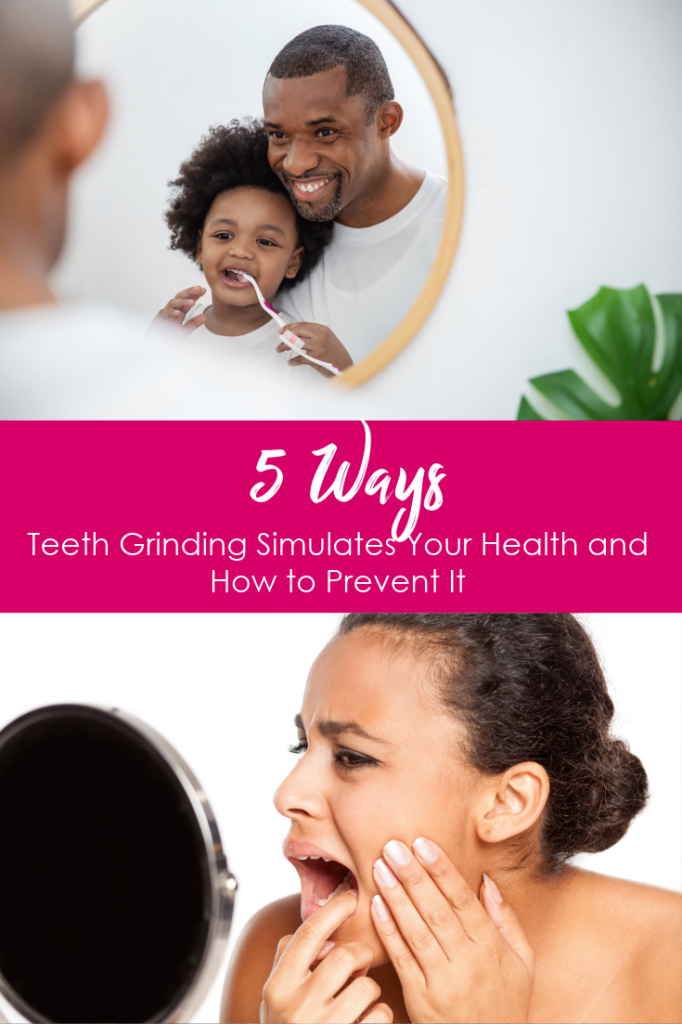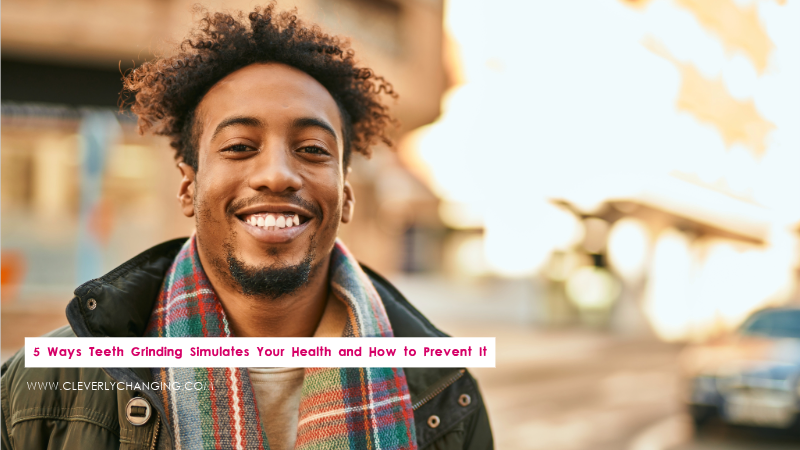Have you been waking up with annoying morning headaches or noticing a little extra sensitivity in your teeth and gums? If so, you could have a condition called bruxism.
This problem, characterized by jaw clenching and teeth grinding, happens to nearly 30% of the population. While it can happen to kids, childhood bruxers usually grow out of their symptoms. Adult bruxing, on the other hand, can last for years, causing significant damage in the meantime.
Sometimes, the person clenching and grinding doesn’t realize they’re doing it until the effects are too severe to ignore. Getting a regular checkup at your local dentist, like natelewis-dds.com/, is the surest way to catch bruxing signs early.
Why is something that sounds as innocent as jaw clenching so dangerous if left untreated? Here are five ways teeth grinding affects your health and tips for preventing it.

The Grind on Bruxism
There are two types of bruxism: awake and sleep. Awake bruxers tend to exhibit these behaviors when they’re stressed, but because they’re conscious of pain and sensitivity, they tend to stop before too much damage happens. Sleep bruxers unconsciously clench and grind while deep in slumber, and they can grind straight through the pain without waking up!
For that reason, sleep bruxing is usually more concerning than its awake counterpart. When you clench and grind in your sleep, it can lead to these five damaging effects:
- Tooth and Gum Sensitivity: Because your upper and lower teeth are grinding together, sometimes for hours, it wears away at the enamel and puts stress on the gum line. If you’re a bruxer, you’ll notice that you’ve been feeling increased sensitivity to temperature. Hot or cold foods and drinks are no longer enjoyable when they come with sharp pain! You may notice extra bleeding in the gums, as well.
- Tooth Decay and Damage: Over time, this enamel erosion exposes your tooth’s delicate, porous underlayer called dentin. Bacteria and debris get through the dentin and eat away at the sensitive nerve and pulp, causing tooth decay. Without the hard layers of enamel to keep your teeth safe, you’re prone to cracks and broken teeth.
- Jaw and Muscle Pain: When you brux, your jaw muscles lead-in work. They clench tightly, creating a bite force of over 250 psi that can go on for hours. It’s no wonder your jaw muscles hurt. Those tissues connect to the rest of your facial muscles, leading all the way to your neck and shoulders, causing those areas to tighten up and become painful.
- Fatigue: Even if you sleep through the night, your body is not resting. Instead, it clenches, grinds, and feels the pain, keeping your brain from focusing on the recovery efforts it needs to give the rest of your cells. Without this rest, you’ll feel tired no matter how much sleep you get.
- Worn-Down Teeth: Most of our teeth are not flat at the top. We need some edges and sharpness to bite and tear our food. But when you brux, your teeth grind together and wear away those sharper surfaces.
Preventing Damage From Bruxism
With all of the dangers of bruxism, how can you prevent the damage from occurring? The first step is to determine why you’re grinding. This can be for a number of reasons, but most bruxing is linked to stress. However, yours might be genetic or because of a medical condition such as sleep apnea. Talk to your doctor or dentist to try to get a handle on the reason you’re bruxing, and together, you can work out a strategic treatment plan.
In the meantime, your dentist can create a custom-made night guard for you to wear while you sleep. This dental appliance doesn’t stop the grinding behaviors, but it keeps the upper and lower teeth from making contact, which reduces the enamel damage.
If you have bruxism, pay attention to the signs and write them down. Then, talk to your doctor about finding a solution to prevent further damage and, eventually, stop grinding for good!

